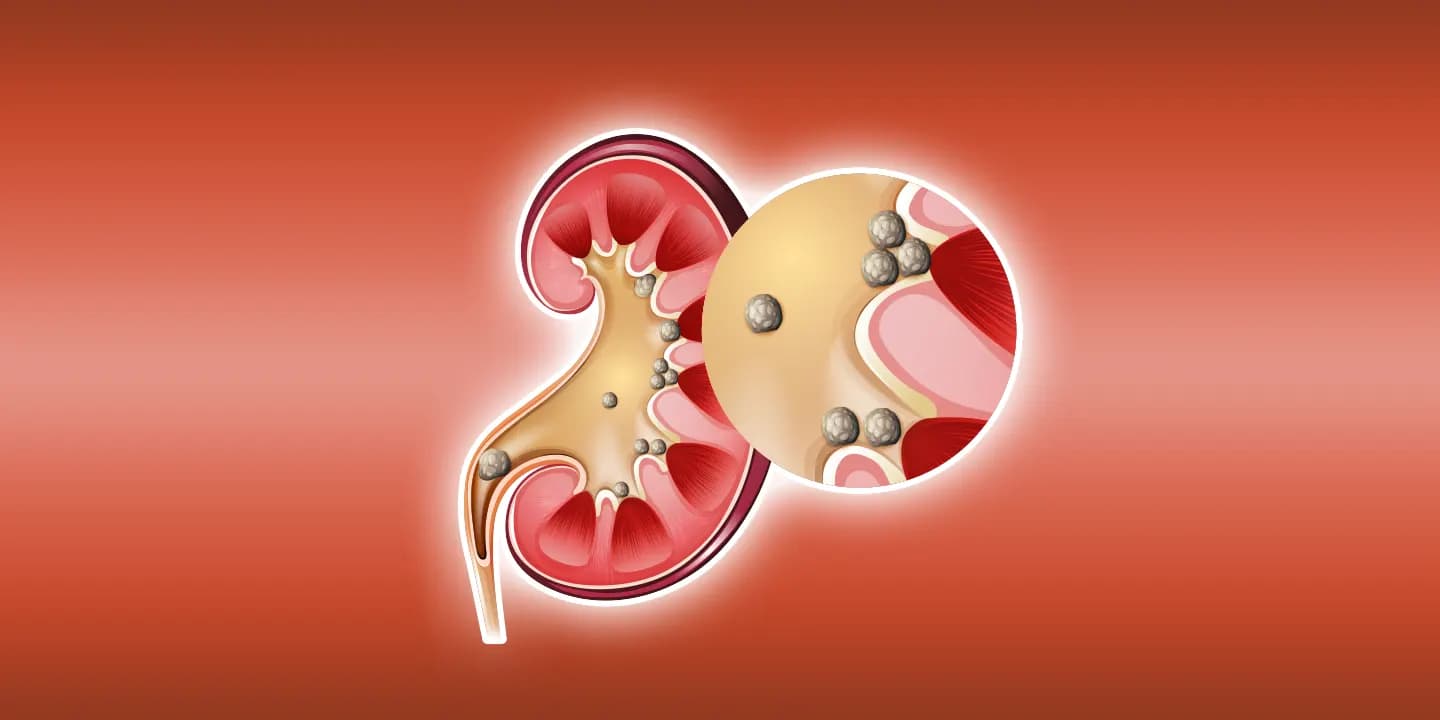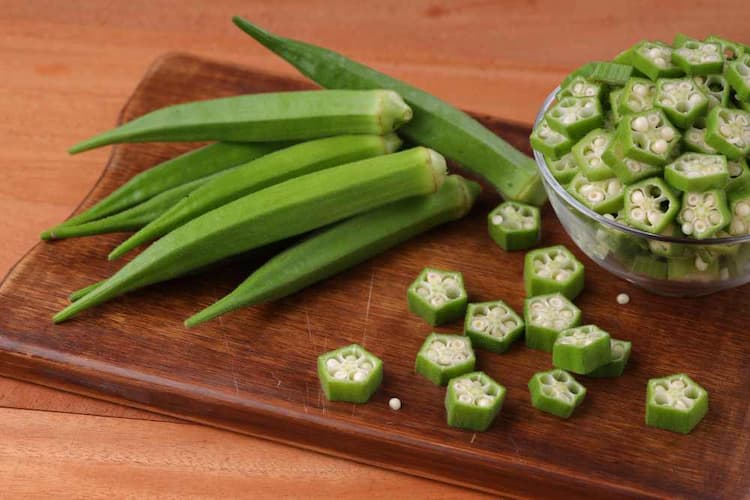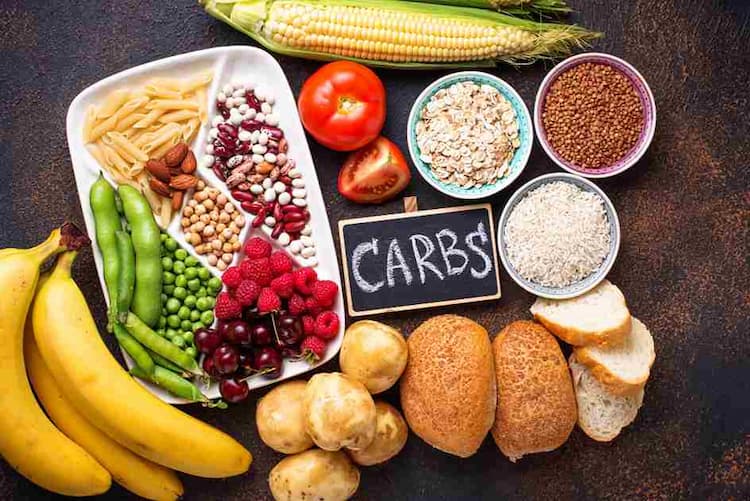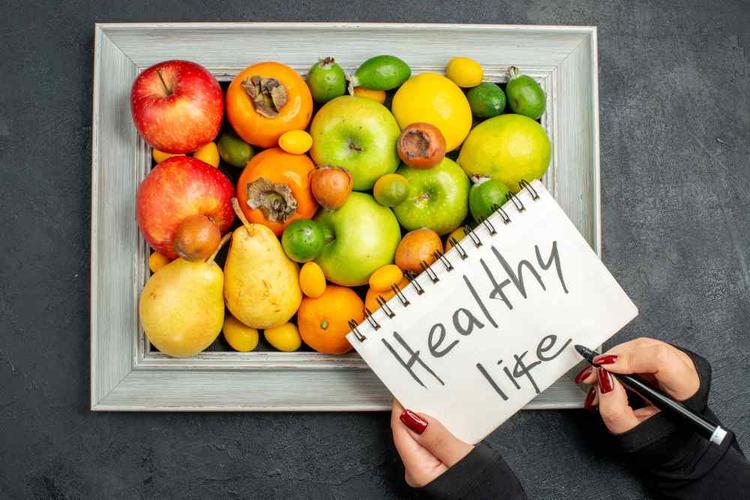Kidney Stone - What are the things you need to avoid in your food

Medically Reviewed By
Dr. Ragiinii Sharma
Written By Srujana Mohanty
on May 15, 2022
Last Edit Made By Srujana Mohanty
on Mar 17, 2024

Kidney stones are hard crystals formed in the kidney. Salts like calcium combine with oxalate or phosphorus in urine to solidify and cause problems like kidney stone pain when expelled through urine.
Kidneys are very essential organs that expel liquid waste. Kidney stones, crystals of salts plus chemicals can be painful while getting pushed off the urinary tract with urine. These kidney stones can also occur as a result of the pileup of uric acid, cystine, or calcium phosphate.
|
Experiencing a sudden hit of pain in the abdomen, or feeling pain and burning sensation during urination always isn’t due to lack of hydration. These persistent symptoms could be due to kidney stones that you have been brushing to the curbside. Don’t drag it along and instead book an ultrasound scan with Redcliff Labs to get a comprehensive diagnosis. |
A variety of healthy foods help prevent such build-up of chemicals in the kidneys. While your dietician helps formulate a diet plan with foods to avoid kidney stones. This article explores foods you can have and avoid to keep kidney stones at bay.
In this Article
Is it possible to prevent kidney stones through healthy diet and foods?
Yes! One of the best possible ways to avoid kidney stones is to drink plenty of water every day and not dehydrate your body. And to prevent the recurrence of kidney stones, you will need to drink at least 3 litres of fluid each day, According to the National Institute of Health, U K.
Studies also show that an increase in weight or obesity can increase the risk of kidney stones.
An optimal approach of a healthy diet, exercise, and medications (only if necessary) can help lose weight and help avert the risk of the obesity-induced renal stone condition.
What are the foods that can be taken and avoided for kidney stones?
There are no specific foods or drinks to be taken or avoided for kidney stones. Diet plans are constructed based on the type of kidney stone an individual has. If you have a stone in your urinary tract, your doctor will first conduct a urine and blood test to understand the type of stone formed inside. The types of kidney stones formed inside include:
- Calcium Oxalate Stones
- Calcium Phosphate Stones
- Uric Acid Stones
- Cystine Stones
Here are the foods and dietary tips according to the type of kidney stone.
Calcium Oxalate Stones
- Reduce the amount of oxalate
Oxalate is one one the primary causes of kidney stones. Some of the foods to be avoided to help reduce oxalate in the urine are:
- Nuts and products made of nuts,
- Legumes are rich in oxalates
- Spinach
- Wheat bran
- Reduce sodium intake
Too much sodium intake can increase the chances of kidney stone formations in the body. Sodium is highly present in table salt, condiments, meats, tinned, packaged, and processed foods. Fast foods also have high sodium that must be avoided. If you are used to seasoning your salads with salt often, you may have to cut it off or reduce the quantity.
According to the dietary guidelines by the U.S Department of health and human services, an adult should aim to consume less than 2,300 mg sodium per day. And one teaspoon of table salt contains 2,325 mg of sodium.
- Limit animal protein
Animal proteins such as,
- Beef, chicken, pork, and organ meats
- Eggs
- Fish and shellfish
- Milk, cheese, and other dairy products may increase the likelihood of developing kidney stones.
Although animal proteins are essential and fulfil your daily protein requirement, consider replacing meats and animal proteins with beans, dried peas, lentils, and soy products that are protein-rich but low in oxalate.
- Increase calcium and Vitamin D
Oxalate levels rise in the body when the calcium intake is low. It is always better to get calcium from food rather than supplements. Foods rich in calcium include milk, yoghurt, legumes, green leafy vegetables, nuts, seeds, soy products, tofu, cottage cheese, and other cheeses. Vitamin D helps absorb more calcium. Have foods high in vitamin D or take in the natural vitamin D source-the sun. Fishes, mushrooms, and cheese are good sources of vitamin D.
Calcium Phosphate Stones
- Reduce sodium intake
Like in the case of calcium oxalate stones, you will need to limit sodium intake to prevent calcium phosphate stone formations. For a more refined method of monitoring your salt or sodium intake,
- Measure and write down the amount of salt you take every day
- Avoid eating out, fast foods, processed foods, canned and tinned products, and meats.
- Check the labels of the foods you purchase for the amount of sodium present in the food.
- Consider having foods labelled as sodium-free, salt-free, very low sodium, unsalted, less sodium, light in sodium, and lightly salted.
- Reduce animal protein intake
Replace animal protein with plant-based protein more often. Some of the plant-based proteins are:
- Legumes-beans, peas, lentils, and peanuts
- Soy products- soy milk, soy butter, and tofu
- Nuts- almonds, cashews, walnuts, and pistachios
- Sunflower seeds and pumpkin seeds
- Take more calcium-rich foods
If you have calcium phosphate stones, you may need to get enough calcium-filled foods. Calcium can block the formation of stones, so foods rich in calcium such as calcium-fortified juices, cereals, dark green vegetables, beans, soy products, milk, yoghurt, cheese, and tofu can help prevent calcium oxalate stones.
Uric Acid Stones
- Cut down animal-based proteins
Many sources of animal protein such as red meat, pork, chicken, shellfish, organ meats, and poultry, have a natural chemical called purines. Increased purines in the body can increase uric acid production in the body. And more the uric acid, the more will be the impact on the kidneys to eliminate them sometimes, leading to acidic urine. Reducing animal-based protein and including more fruits and green leafy vegetables can help decrease urine acidity and uric acid stones.
Also, excess animal protein intake reduces a chemical in urine called citrate. Citrate prevents the formation of kidney stones. Cut down foods with high purines and choose alternatives to an animal protein like quinoa, tofu, hummus, beans, lentils, seeds, nuts, and soy products.
Since protein is essential and should be taken every day, discuss with your specialist what type of protein and how much protein is to be taken daily.
- Limit alcohol intake
Alcohol and short-term dieting can increase uric acid levels in the body. Avoid alcohol and do not go for short-term weight loss programs that can affect the uric acid levels in the body.
Cystine Stones
If you previously have had cystine stones, you will need to drink plenty of water. That is the only necessary change to prevent cystine stones. Talk to your doctor about what kinds of fluids and how much fluids for cystine stones.
Comprehensive chart showing the foods to take and avoid for kidney stones
| Type of Kidney stones | Foods to avoid | Foods to take |
| Sodium Oxalate stones | Oxalate foods
| Calcium foods
Drink plenty of fluids and water |
| Sodium Oxalate stones and Sodium phosphate stones | High sodium foods
| |
| Sodium Oxalate stones, Sodium phosphate stones, and Uric acid stones | Animal proteins
| |
| Uric acid stones | Alcohol and short-term weight loss dieting | |
| Cystine stones | Salty foods, processed and packaged foods |
Diet tips for a kidney stone
If you have had kidney stones previously, the chances of getting them again certainly increase. However, you can prevent them from coming through a diet, watching what you eat and drink, and taking medicines as prescribed by the specialist.
If you have kidney stones, treatment will include a specific diet plan, such as the DASH Diet, which includes:
- Drink a minimum of twelve glasses of water every day.
- Eat lots of citrus fruits, such as oranges, tangerines, berries, and kiwi.
- Include calcium-rich foods in your every meal.
- Talk to your doctor or dietician about the foods you can eat and avoid during this time.
- If you are limiting animal-based protein intake, choose alternative high protein foods instead- soy products, legumes, lentils, and more.
- Prefer foods that are low in salt and added sugar.
- Avoid processed, packed, and fast foods
- Avoid carbonated drinks, alcohol, caffeine that can dehydrate you easily.
Frequently asked questions
-
Is beer really helpful in the removal of kidney stones?
There is no scientific evidence proving beer helps prevent kidney stones. On the contrary, alcoholic beverages have high purine content that can increase the risk of kidney stones.
-
Is milk bad for kidney stones?
Milk is rich in calcium- an important nutrient that helps prevent kidney stones. It is a misconception that the animal protein in milk causes kidney stones. However, milk does not cause kidney stones and in fact helps prevent them.
-
Do kidney stones flare up after eating?
Certain foods and drinks with chemicals that trigger kidney stone build-up can cause pain after eating. Another possibility can be drinking too little water after a meal which can flare up kidney stones.
Conclusion
People with kidney stones have sharp, resonating, and stabbing pain in the abdomen. Typical kidney stone pain is on one side of the stomach. Staying hydrated and keeping away from certain foods such as high salt, sugar, oxalate, and sodium can be important moves in preventing kidney stones. Inclusion of calcium-rich foods and avoiding alcohol are other dietary changes that can help manage kidney stones.
While you make these changes in managing and preventing kidney stones, do not forget to take medicines as prescribed. Connect with your doctor for more guidance on foods and drinks you can take and avoid in the case of kidney stones.




